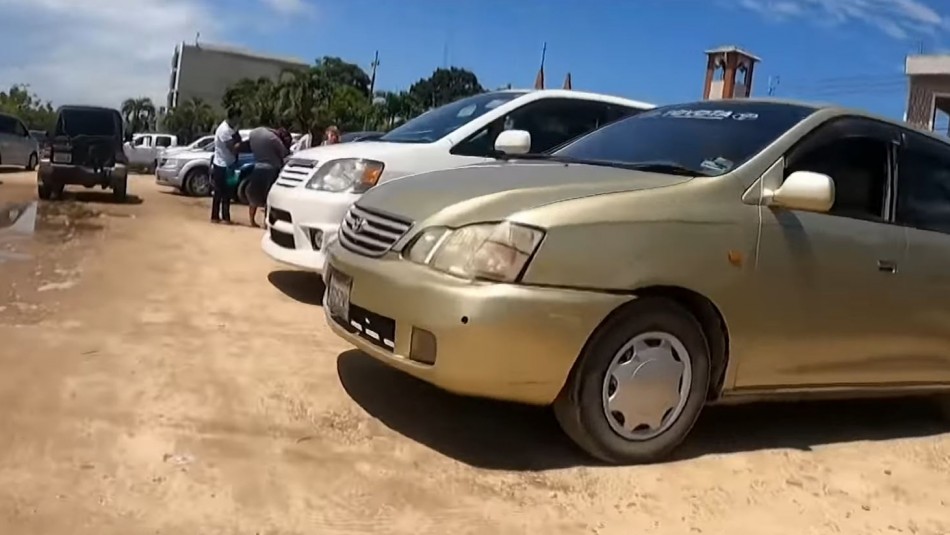Vehicle smuggling is a problem increasingly affecting Chile and Bolivia’s economies.
Between January and July this year, 1,687 undocumented cars were seized in Bolivia. The vast majority were located in the Andean region of Oruro (515) and La Paz (494), causing a loss of close to US$35.5 million, according to National Customs.
Those motorized vehicles that manage to evade the controls circulate mainly in Bolivian border towns, many without control papers and others with cloned documents.

In this context, there are voices of people who bought these vehicles, called “chutos” in Bolivia, and who demand amnesties for their nationalization or regulation.
The number of “chutos” vehicles currently circulating in the country is unknown, although the most moderate estimates are 200,000 units. However, the general manager of the Bolivian Automotive Chamber (CAB), Luis Orlando Encinas, speaks of 500,000.
“It is not us who are being directly affected by the “chutos” importers. It is a problem and damage to the entire Bolivian State,” he said.
According to the businessman, annually, between 50,000 and 60,000 vehicles are imported through legal channels, so an eventual “nationalization” of these half a million illegal cars would be equivalent to the imports of a decade.
Those calling for amnesty to legalize 200,000 undocumented vehicles calculated that the Bolivian government would obtain some US$280 million for this.
For Encinas, this amount does not represent any benefit, considering that the country must import diesel and gasoline to cover its internal demand. This expense could reach US$2 million, and then these fuels are sold at prices subsidized by the State.
In addition, private businessmen in Bolivia and Chile point out the criminal concept of “receptación”, which punishes those who sell or buy stolen goods.
VEHICLE SMUGGLING: A DIFFICULT FIGHT BY THE STATE
Actions against this illicit are coordinated between Customs and the Vice-Ministry of the Fight against Smuggling, created in 2018 after vehicle smugglers killed two military officers in an ambush.
General Daniel Vargas, head of this portfolio, acknowledged that the breadth of the border between Bolivia and its five neighbors makes it sometimes “very difficult” to cover the sectors where the “chuteros” or vehicle smugglers enter.
Despite this, “the strategic deployment” of the Armed Forces on the borders makes it possible to reach the main routes used for car smuggling, “having as a center of gravity the border with Chile”, Vargas assured.
According to the officer, two ways of entry for these cars have been identified. The first is through authorized checkpoints, using “twinned” or cloned documentation, and the second through illegal crossings.
“In some cases, there are confrontations because they do not allow themselves to be removed (the vehicles), and in many cases, we have also seen that they use firearms and explosives”, indicated the vice minister.
CRIMES LINKED TO THIS MILLIONAIRE ACTIVITY
According to Vargas, the fight against smuggling in Bolivia has detected occasional links between drug traffickers and smugglers, who arrive at the border with Chile with small quantities of drugs to exchange them for undocumented or stolen vehicles.
There is also a concern in Chile about the growing theft of vehicles, which is encouraged by the market that has opened up in Bolivia for these products.
According to the Secretary General of the National Automotive Association of Chile (ANAC), Diego Mendoza, in the north of Chile, “there has been a huge increase in crime associated with the theft of vehicles, even new ones that have not yet had their license plates installed”.
In his opinion, the cooperation agreement for recovering stolen vehicles between the two countries “has been scarcely used”, as it requires legal complaints and the intervention of lawyers on both sides.
He also warned about the flourishing of criminal gangs that buy vehicles in Chile, paying in cash, to sell them in Bolivia and thus “launder money” from other illicit activities such as drug trafficking or arms trafficking.
“The laws are in place today; we need to enforce them,” said Mendoza, urging greater cooperation between states.
Finally, he stated that “the government has been proposing that, through the Foreign Ministry, a bilateral agenda be established to address the issue of smuggling in general. In particular, the issue of undocumented vehicles that are filling our country and are affecting the economy”.
With information from BBCL

